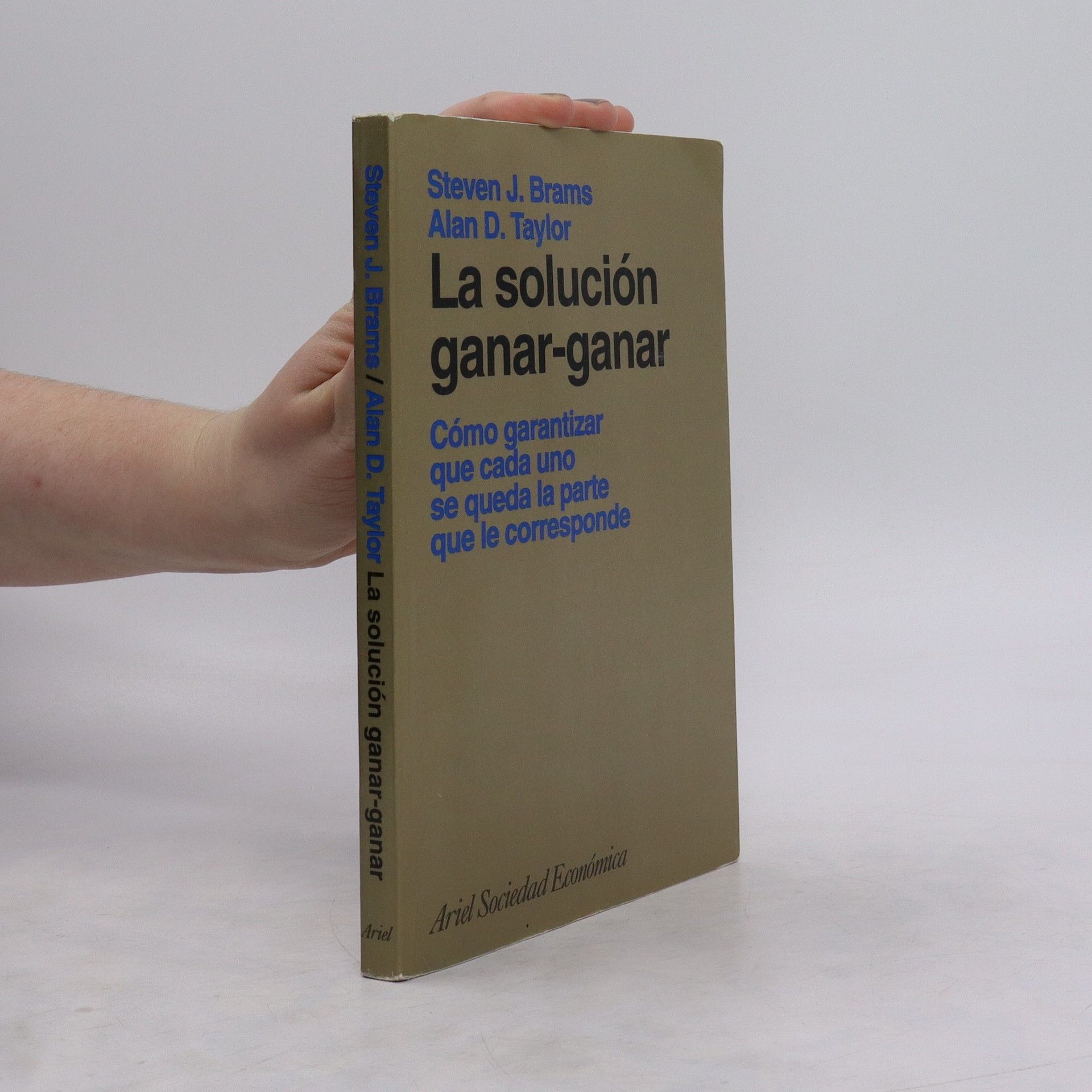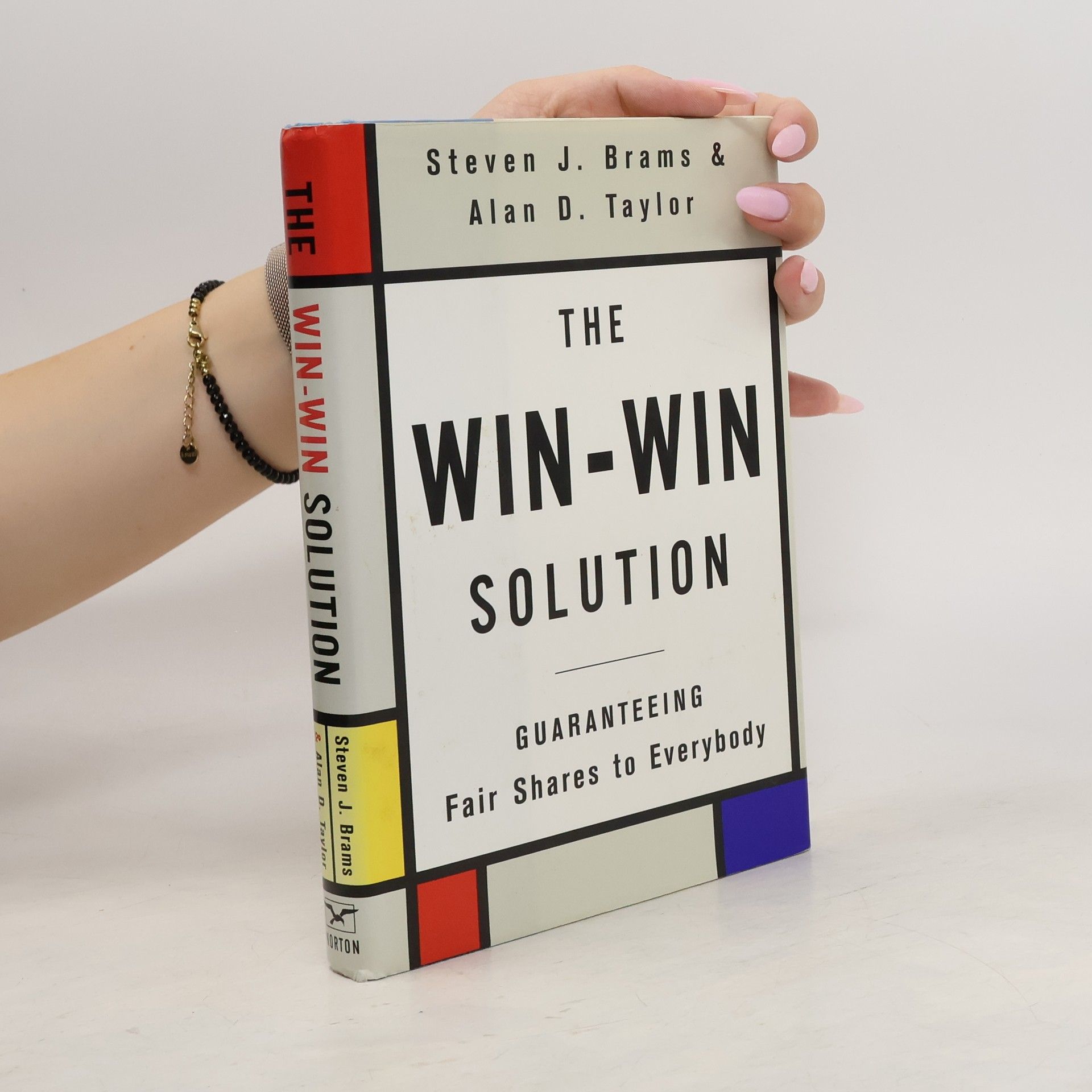Offers a technique that is not only fair, but also guarantees that both parties walk away with as much of the "win-win" potential as possible.
Steven Brams Bücher
28. November 1940


La solución ganar-ganar
- 188 Seiten
- 7 Lesestunden
Como garantizar que cada uno se quede con la parte que le corresponde. Todos sabemos la importancia de llegar a un acuerdo. Este libro elimina el problema del regateo. Se garantiza una solución en la que todos ganan.